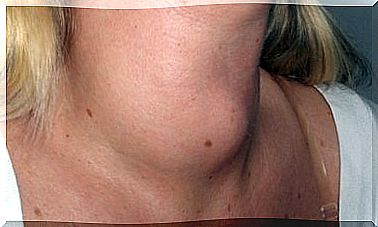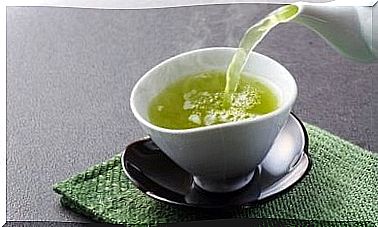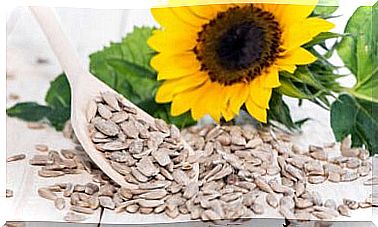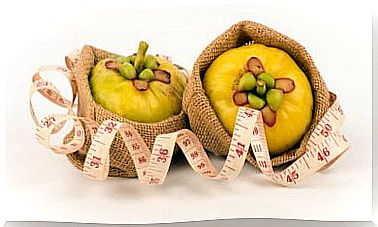Natural Remedies To Increase Red Blood Cells
Red blood cells help carry oxygen throughout the body. Therefore, they are an important part of hemoglobin.
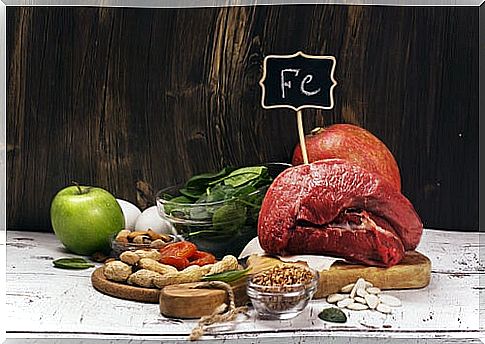
The best natural remedies to increase red blood cells are foods rich in iron and other essential nutrients for the body. Do you know what they are and how you can incorporate them into your diet to take advantage of all their benefits? In case you have any doubts, don’t worry because below we will tell you everything you need to know about it.
Why are red blood cells important?
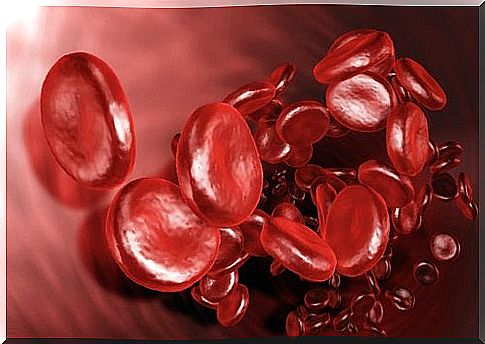
Erythrocytes, red blood cells or red blood cells are essential in the body since they have the task of transporting oxygen-filled blood to all tissues of the body, at the same time that they eliminate carbon dioxide.
They are red in color because they contain hemoglobin (a protein rich in iron). With the passage of time the blood cells die and the bone marrow is responsible for manufacturing more.
However, for this the body must have the necessary “ingredients”. Otherwise, what is known as anemia occurs. This condition is characterized by low or almost no production of red blood cells, although it also occurs when each one contains little hemoglobin. The most common anemia is due to low iron intake in the diet.
To avoid this problem, adults should consume 8 mg of iron per day. In the case of menstruating women, the amount must be increased to 18 mg daily. In addition, to help in the absorption of this nutrient it is recommended to eat foods rich in vitamin C.
Habits to have more red blood cells
It is very important to always maintain a healthy lifestyle, eat foods that contain iron – within a balanced diet – and, above all, seek advice so as not to suffer from anemia or a low amount of red blood cells or red blood cells.
Some changes in habits that can help you increase red blood cells are the following.
1. Include foods rich in iron in the diet
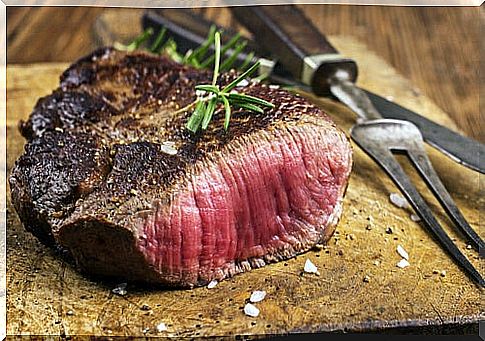
If you incorporate foods rich in iron into your diet, the body will have the ability to rebuild or replace those lost or damaged red blood cells. Among the foods that contain this mineral are:
- Red meat.
- Egg yolks.
- Plums and raisins.
- Lentils (and legumes in general).
- Spinach and Swiss chard (and green leafy vegetables).
2. Consume more copper and folic acid
These two nutrients are essential for the formation of red blood cells because they are also present in hemoglobin. For more copper we recommend the following options:
- Poultry.
- Whole grains
- Dark chocolate.
- Mollusks.
- Beans.
- Walnuts.
As for folic acid, or vitamin B9, we can find it in:
- Legumes (lentils and beans).
- Green vegetables.
- Whole grains.
- Walnuts.
3. Get vitamins A and C
The first contributes to the development of stem cells in the bone marrow, which means a greater production of red blood cells. To take advantage of it, the following foods should be included in the diet:
- Apricots
- Carrots
- Spinach.
- Peppers.
- Plums
To add more vitamin C to the body and increase the production of red blood cells, we recommend eating fruits such as tomatoes and kiwis.
4. Get more exercise
Although when a person has anemia it is likely that their desire to exercise is less, it is essential to start, even if it is, with a gentle routine (going for a walk, biking, swimming, etc.).
Do not forget that sport is essential to produce red blood cells and have more oxygen throughout the body. Consult with your doctor about this aspect and follow his instructions.
5. Give up cigarettes and alcohol
Bad habits make things worse. If you smoke or drink alcohol in excess, the health of the body suffers, which can even affect hemoglobin levels, the elasticity of blood vessels, among other aspects.
Home remedies for red blood cells
At the first symptoms of weakness, headache, pale skin or cold in the extremities that indicate anemia, it is necessary to consult a doctor. Once a treatment is prescribed, you can begin to improve your lifestyle progressively and include the following home remedies in your lifestyle.
Grapefruit and beet
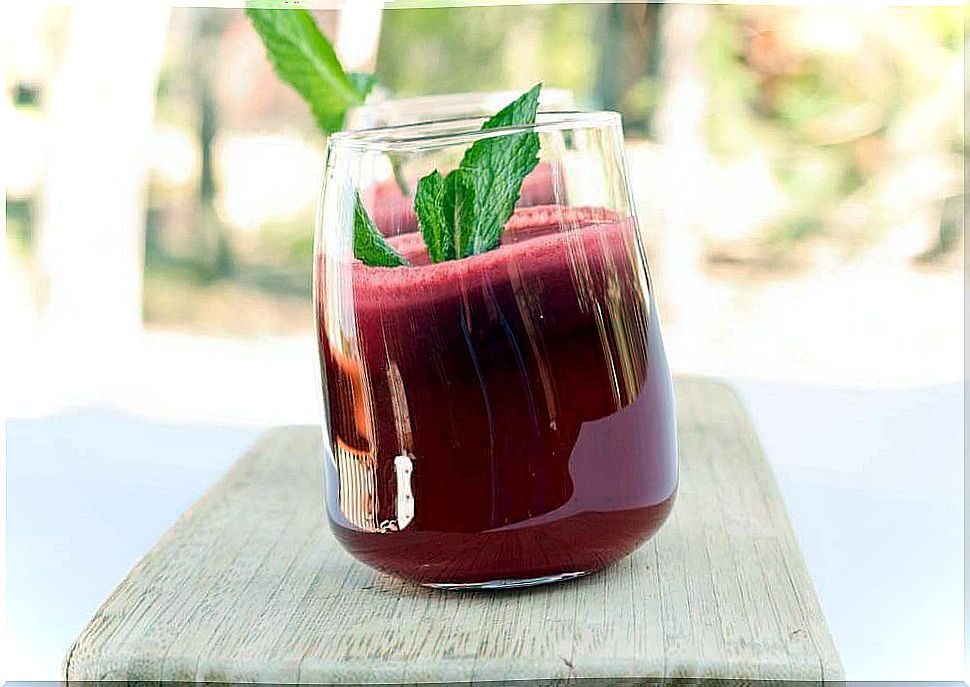
It is believed that the juice of these two vegetables could supplement the diet and help increase the levels of red blood cells in the blood.
Ingredients
- 3 beets.
- The juice of 1 grapefruit.
Preparation
- Peel the beets and cut them into small cubes.
- Squeeze the juice from a grapefruit.
- Place everything in the blender glass and process until smooth.
- Consume in moderation within a balanced diet.
Walnut and pollen infusion
This drink is a typical grandmother’s remedy that is believed to help if we suffer from anemia.
Note : if you are allergic, refrain from consuming it without the authorization of your doctor.
Ingredients
- 2 cups of water (500 ml).
- 1 teaspoon of bee pollen (5 g).
- 2 tablespoons of walnut leaves (20 grams).
- 1 teaspoon of cod liver oil (5 g).
Preparation
- Bring the water to a boil along with the walnut leaves.
- When it boils, let the decoction cook for 5 minutes and remove from the heat.
- Let stand 5 minutes and filter.
- Add the oil and pollen.
- Consume divided into two daily doses.
Garlic soup
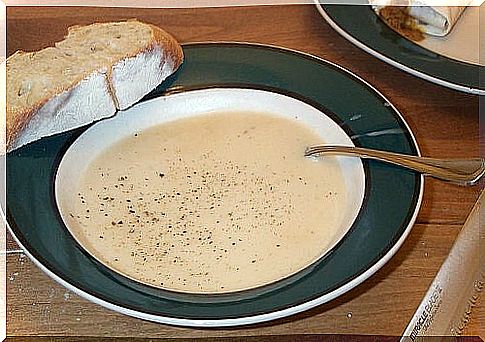
Eating a garlic soup can not only be a treat, but also a way to vary the diet and get the necessary nutrients to increase red blood cells. To prepare it you will need:
Ingredients
- 6 cloves of garlic
- 2 slices of bread.
- 8 cups of water (2 liters).
- ½ cup of oil (100 g).
- 1 teaspoon of paprika (5 g).
Preparation
- Crush the peeled garlic cloves and fry them in the oil.
- When they are golden, add the slices of bread and the paprika.
- Pour in the water and cook for half an hour.
- Consume a maximum of 3 cups throughout the day.
What else can you do to increase red blood cells?
In addition to following the recommendations of your doctor, you should try to maintain good lifestyle habits and, above all, in relation to diet. Try to eat healthy, with nutritious foods that provide you benefits both in the short and long term, do not go hungry and learn to choose the combinations that are best for you. To do this, you can always consult your doctor or a nutritionist.


